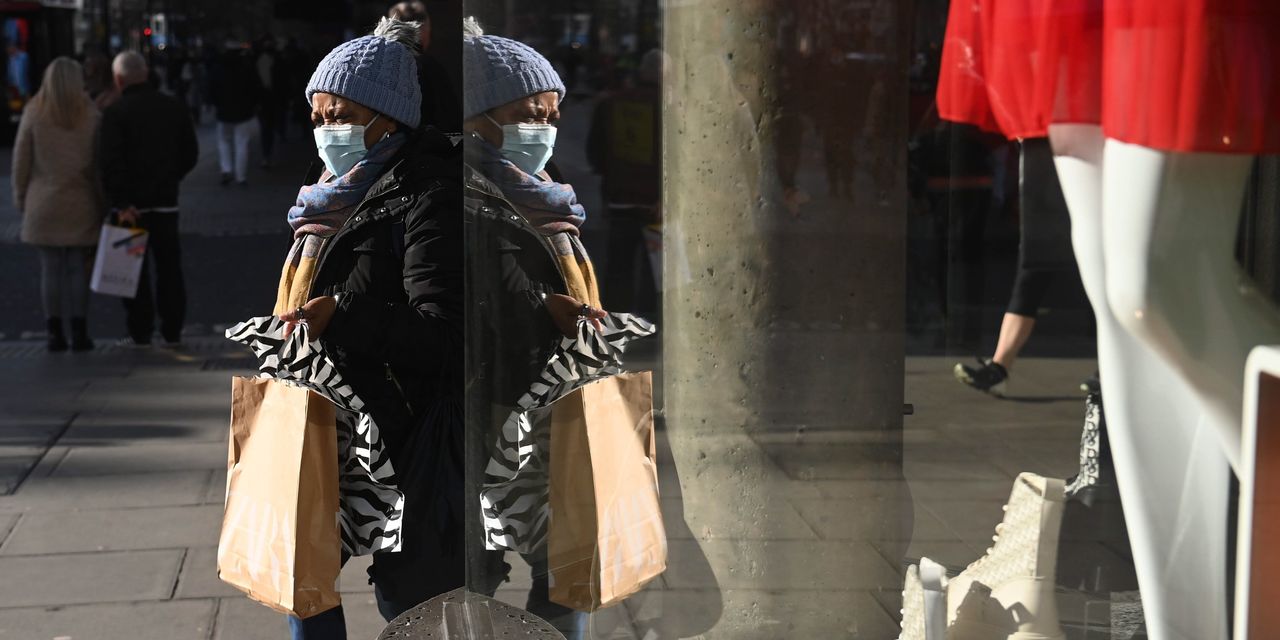
The U.K. economy contracted in the final month of last year as the spread of the Omicron variant hit hospitality and other consumer services, but the impact of infections on the economy was smaller than expected and opens the way for further rate increases by the Bank of England as it seeks to rein in surging inflation.
With the economy expanding rapidly in October and November, growth for 2021 as a whole was 7.5%. That was the strongest performance among the Group of Seven largest rich economies, but the U.K. also suffered the largest contraction in 2020 and had further to climb to get back to its pre-pandemic level of activity.
The U.K.’s Office for National Statistics Friday said economic output in December fell by 0.2% from the previous month, less than half the decline expected by many economists.
“The economic impact of Omicron was far smaller than that of either of the two previous major waves of Covid-19,” said Rory Macqueen, an economist at the U.K.’s National Institute for Economic and Social Research.
Following growth in October and November, total output in the final three months of 2021 remained 0.4% below its level in the final three months of 2019, the last before the Covid-19 pandemic struck. The U.K. is now expected to return to its pre-pandemic level of activity in this quarter, reaching a milestone the U.S. economy passed in the middle of last year.
Business surveys suggest high rates of infection held back growth in January, but economists expect the economy to rebound from this month as the impact of the Omicron surge fades.
Earlier this week, U.K. Prime Minister Boris Johnson said he plans to lift all remaining coronavirus restrictions in England later this month, including the requirement to isolate if infected.
The rebound would pave the way for further rate rises by the Bank of England, which last week announced its second move in as many policy meetings as it anticipates an inflation of 7% over coming months. But with consumer spending under threat from a combination of surging energy costs and looming tax rises, the BOE will likely have to tread carefully to avoid stalling the recovery.
“The Bank of England is still on course to hike interest rates two more times this year, after this we expect it will switch into data dependent mode, with further increases delayed until next year,” said Dean Turner, an economist at UBS Global Wealth Management.
The International Monetary Fund expects the U.K. economy to grow by 4.7% this year, while it projects 4% growth in the U.S..
Write to Paul Hannon at [email protected]
Copyright ©2022 Dow Jones & Company, Inc. All Rights Reserved. 87990cbe856818d5eddac44c7b1cdeb8
Appeared in the February 12, 2022, print edition as ‘U.K. Faces Economic Slowdown as Inflation Rises.’







